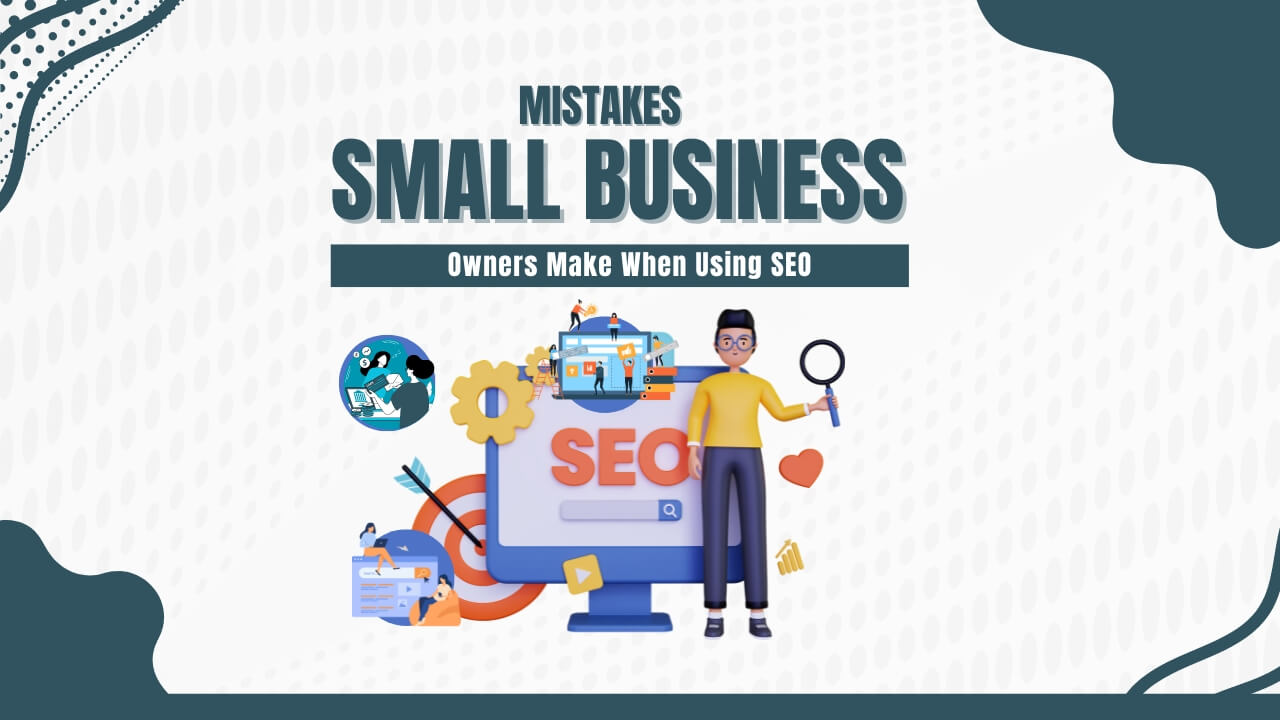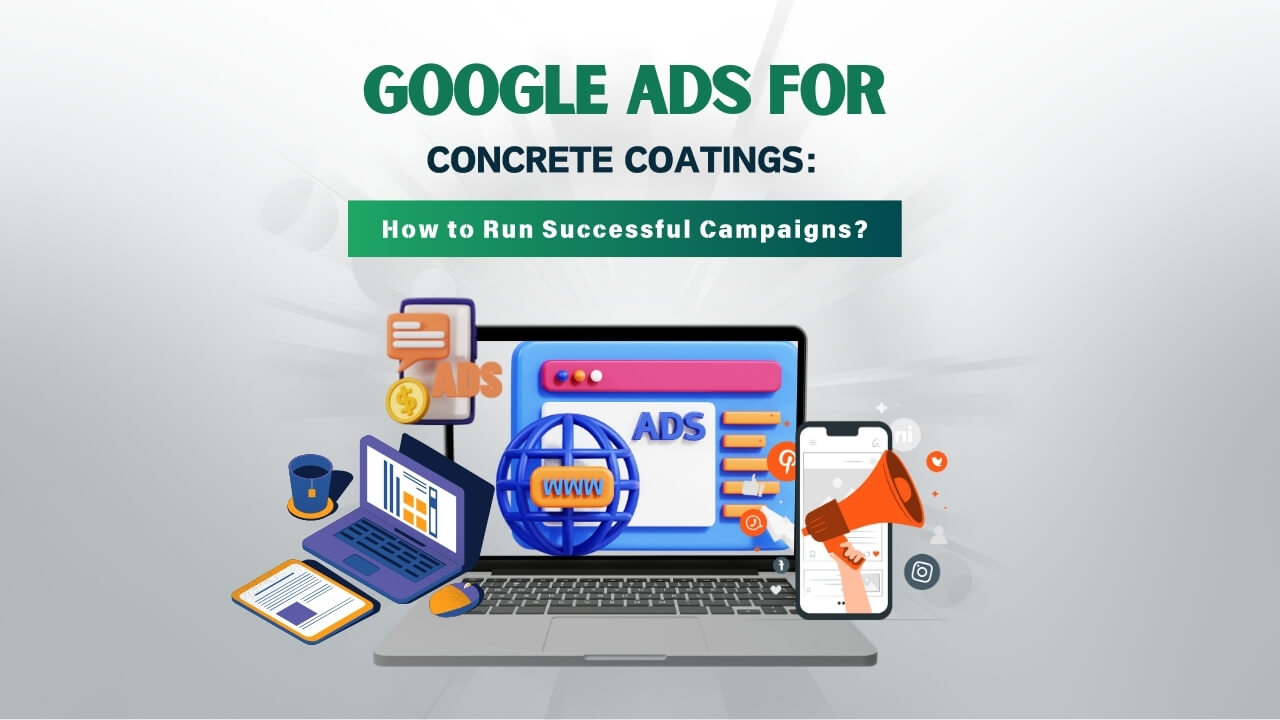Introduction
The real estate industry is so dynamic and competitive and has found a robust ally in digital marketing. As traditional methods of property marketing evolve, real estate professionals are mainly diverting their marketing efforts to the online platforms to effectively reach the potential buyers and sellers.
Among various advanced digital marketing tools available in this digital era to help the online market, Google Ads and Facebook Ads stand out as two of the most powerful and widely used platforms.
The debate on “google ads vs facebook ads for real estate” is one of the hot topics among the marketers, given their effective features and key benefits.
The main aim of this blog is to dissect both these platforms, offering valuable insights of their functionalities, advantages, and how they can be integrated effectively in Real estate marketing.
By properly knowing the key benefits and features of “google ads vs facebook ads for real estate,” real estate professionals can easily refine their marketing strategy to capture leads, enhance the visibility, and ultimately, close more deals.
Understanding Google Ads for Real Estate
Google Ads, also known as Google AdWords, is one of the comprehensive advertising platforms that enables the businesses to display their ads on Google’s search engine results pages (SERPs) and also in the partner websites.
For real estate professionals, Google Ads provides a unique opportunity to place their property listings, services, and brand in front of potential clients actively searching for real estate opportunities.
Benefits of Using Google Ads for Real Estate
- High Intent Targeting: Google Ads mainly operates based on the search queries, meaning your ads are shown to users who are actively searching by the related terms or using the related keywords. This high intent targeting ensures that the budget is spent effectively on the leads who have a genuine interest in buying or selling the property.
- Geographic Targeting: Real estate is inherently local. Google Ads allows the real estate marketer to effectively target their ads based on the specific geographic locations effectively covering broad regions to the zip codes. This precision targeting ensures that your ads reach your potential clients in the areas you serve, increasing the effectiveness of the campaigns.
- Measurable ROI: Google Ads provides various analytics and tracking tools that allow real estate professionals to effectively measure the success of their campaigns. By effectively analyzing the key metrics such as click-through rates (CTR), conversion rates, and cost per acquisition (CPA), advertisers can adjust their strategies to get the maximum return on investment.
- Flexible Budgeting: Whether you’re a sole proprietor or part of a larger real estate agency, Google Ads can accommodate your budget. With its pay-per-click (PPC) model, advertisers should only have to pay when someone clicks on their ads, allowing for efficient allocation of marketing resources.
Types of Google Ads Campaigns Suitable for Real Estate
- Search Campaigns: These campaigns display your ads on Google SERPs when users search for keywords related to your real estate services. Utilizing keywords like “homes for sale in [Location]” or “real estate agents near me” can drive highly targeted traffic to your website.
- Display Campaigns: Google’s Display Network reaches over 90% of internet users worldwide. Display campaigns allow real estate professionals to show visual ads on websites and apps that potential clients visit. This is particularly useful for building brand awareness and retargeting visitors who have previously engaged with your site.
- Video Campaigns: With YouTube being the second largest search engine, video campaigns can significantly enhance your real estate marketing strategy. Showcasing property tours, client testimonials, or neighborhood guides in video ads can engage potential clients in a compelling way.
- Local Service Ads: Specifically designed for local businesses, these ads appear at the very top of Google SERPs and include a “Google Guaranteed” badge, instilling trust among potential clients. While currently available for limited industries, real estate professionals should keep an eye on this evolving opportunity.
The strategic use of Google Ads in real estate marketing not only enhances visibility but also drives more qualified leads by targeting potential buyers and sellers at the moment they’re searching for properties or real estate services.
By leveraging the benefits and choosing the right types of campaigns, real estate professionals can effectively reach their targeted audience, making “google ads vs facebook ads for real estate” a crucial consideration in their overall marketing strategy.
Understanding Facebook Ads for Real Estate
Facebook Ads offer a dynamic platform for real estate professionals to effectively connect with their potential clients through the world’s largest social network.
With over 2.8 billion monthly active users, Facebook provides a wide range of reach, making it one of the essential tools for real estate in digital marketing.
Benefits of Using Facebook Ads for Real Estate
- Advanced Audience Targeting: Facebook’s sophisticated targeting options allows the real estate advertisers to effectively tailor their advertising campaign based on the demographics, interests, behaviors, and even life events. This means you can target individuals who are likely to move, recently engaged couples, or those interested in real estate investments, ensuring your ads are reaching the right audience who are mainly interested in your offerings.
- Visual Engagement: Real estate as you know is mainly a visually driven industry, and Facebook Ads has mastered the property to showcase their ads through high-quality images and videos. This visual appeal can easily engage the potential buyers and sellers, making your listings more memorable and engaging.
- Versatile Ad Formats: From carousel ads that help to display multiple properties in a compelling story telling way, Facebook offers a variety of ad formats to suit different marketing objectives. This versatility enables real estate professionals to creatively present their property and service in front of their audience.
- Cost-Effective Brand Building: Facebook Ads can be a cost-effective way to build brand awareness within your target market. Even if you have a limited budget, you can easily reach thousands of potential clients, making it one of the most preferred platforms for real estate professionals who are looking to establish or are looking to enhance their presence in the market.
- Remarketing Capabilities: Facebook’s powerful remarketing tools allow you to engage with users who have once previously visited your website or social media profiles. This is particularly effective in real estate, where the decision-making process can take time, keeping your brand the first preference for the potential clients.
Types of Facebook Ads Campaigns Suitable for Real Estate
- Carousel Ads: it is mainly useful to showcase multiple properties or different features of a single property. Users can easily scroll through various images in a single ad, providing a comprehensive view of their offerings.
- Video Ads: Use video tours of properties, client testimonials, or neighborhood guides to effectively engage more and more potential clients. By using Video ads you can create a story and can give a realistic view of what living in a particular home or community is like.
- Lead Generation Ads: These ads are mainly designed to collect the information from interested parties directly within Facebook, making it easy for potential buyers and sellers to connect with you. They’re especially useful for gathering contact details for follow-up.
- Dynamic Ads for Real Estate: These ads automatically promote your inventory to people who had once shown interest in your properties, in your app, or elsewhere on the internet. They are highly effective for retargeting and keeping your listings in front of the users who are really interested.
Utilizing Facebook Ads in your real estate marketing strategy provides a unique opportunity to effectively connect with a wide range of audience in a personal and also in an engaging manner.
The platform’s advanced targeting options, combined with the ability to showcase properties visually, make it an valuable tool to reach out the potential buyers and sellers.
As we get into more understanding of the “google ads vs facebook ads for real estate” debate, it’s clear that Facebook Ads present a compelling case for their inclusion in a holistic real estate marketing approach.
Comparative Analysis: Google Ads vs Facebook Ads for Real Estate
The debate between “google ads vs facebook ads for real estate” depends on various factors which influence the effectiveness of each platform in real estate marketing.
Understanding these factors will help real estate professionals to make informed decisions about where to effectively spend their budget to get the maximum return on investment.
Audience Targeting Capabilities
- Google Ads: Google Ads targeting is mainly based on the user’s search intent, keywords, and location. This means ads are shown to users who are actively searching for real estate listings or services, indicating a higher intent to purchase or sell. Google Ads’ strength lies in capturing the demand that already exists, making it highly effective to generate more and more leads.
- Facebook Ads: Targeting mainly revolves around demographics, interests, behaviors, and connections. Facebook’s detailed targeting options helps the real estate marketers to reach their potential clients based on their life events, such as getting married or moving, even before they actively search for real estate services. This much advanced targeting can be an incredible powerup for building brand awareness and generating leads early in the decision-making process.
Ad Formats and Versatility
- Google Ads offers text-based search ads, display ads with images, and video ads through YouTube. While all these formats are very much effective for direct response campaigns and retargeting, they are somewhat limited in creative expression compared to Facebook.
- Facebook Ads show off their variety of ad formats which include photo, video, carousel, slideshow, and immersive experiences like Instant Experiences (formerly Canvas). These formats allow for creative storytelling and visual engagement, which is very much important in the real estate marketing to showcase properties and capture the audience interest.
Cost-Effectiveness and ROI
- Google Ads: The cost can vary depending on the keyword competition and geographic location. Real estate keywords are often highly competitive, leading to higher costs per click (CPC). However, the high intent of users clicking on Google Ads can lead to a higher conversion rate, potentially offering a better ROI for direct lead generation.
- Facebook Ads: Facebook Ads Generally offers lower CPC rates as compared to Google Ads, making it one of the cost effective options for building brand awareness and to engage with a broad range of audience. While the initial conversion rate may be lower as compared to Google Ads, Facebook’s remarketing capabilities can enhance the overall ROI effectively by converting their leads into the sales.
Case Studies or Success Stories
- Google Ads: Real estate professionals have effectively reported success in generating immediate leads for property viewings and listings, especially when targeting the high intent keywords.
- Facebook Ads: Success stories often highlight the platform’s ability to generate high volumes of leads through targeted campaigns, especially when using video and carousel ads to effectively showcase the properties. The ability to build a strong brand presence and engage with potential clients over time is a recurring theme.
Strategic Consideration
Choosing between “google ads vs facebook ads for real estate” doesn’t have to be an either/or decision. The most successful real estate marketing strategies often consider both these platforms as their strength.
Google Ads is unparalleled in capturing high-intent traffic, making it one of the ideal ways for immediate lead generation. Meanwhile, Facebook Ads mainly excels in building brand awareness, generating more and more leads, and to effectively engage with the potential clients at various stages of the real estate journey.
In conclusion, the decision of both Google Ads and Facebook Ads, or a combination of both should be based on the real estate marketing objectives, targeted audience, and budgeting.
By effectively understanding the unique advantages and applications of each platform, real estate professionals can plan an effective digital marketing strategy that can effectively maximize the visibility, engagement, and conversions.
Strategic Integration: Using Google Ads and Facebook Ads Together for Real Estate
The comparison between “google ads and facebook ads for real estate” reveals that each platform offers unique benefits for real estate marketing.
However, businesses often involve both these platforms to enhance their strengths throughout different stages of the buyer’s journey. Here’s how real estate professionals can create a holistic marketing approach by combining Google Ads and Facebook Ads:
Creating a Unified Marketing Strategy
- Start with Your Objectives: Define clear marketing objectives for your real estate business. Whether it’s brand awareness, lead generation, or property sales, understanding your goals will help determine how best to use each platform.
- Identify Your Target Audience: Use the detailed targeting options available on both platforms to define your ideal customer profiles. While Google Ads can capture those with immediate intent, Facebook Ads can help you reach those in the consideration phase or even before they’ve actively started searching.
- Leverage the Strengths of Each Platform: Utilize Google Ads for capturing high-intent traffic with targeted keywords related to buying, selling, or renting properties. Simultaneously, use Facebook Ads for building brand awareness, showcasing property visuals, and engaging with a broader audience.
Implementing Cross-Platform Tactics
- Content Synchronization: Ensure your messaging and visual content are consistent across both platforms. This uniformity helps reinforce your brand identity and messaging, providing a cohesive experience for potential clients.
- Remarketing Across Platforms: Use remarketing strategies to capture interested leads from one platform and engage them on the other. For example, retarget users who clicked on your Google Ads with personalized Facebook Ads to keep them engaged with your brand and listings.
- Leveraging Analytics and Insights: Both platforms offer powerful analytics tools. Analyze performance data to understand which types of ads and targeting options are driving the best results. Use these insights to refine your strategies and optimize your ad spend across both platforms.
- Testing and Optimization: Continuously test different ad formats, creatives, and targeting options on both platforms. A/B testing can reveal valuable insights into what resonates best with your target audience, allowing you to optimize your campaigns for better performance.
Real Estate Marketing Integration Example
A real estate agency could launch a Google Ads campaign targeting keywords related to “homes for sale in [Location]” to capture immediate leads. Simultaneously, the agency could use Facebook Ads to target a broader audience interested in real estate investments or lifestyle changes indicating a potential move.
By integrating remarketing strategies, the agency can then retarget website visitors from Google Ads on Facebook with visually engaging ads showcasing new listings or customer testimonials, thereby nurturing leads through the sales funnel.
Conclusion and Best Practices
Integrating “google ads vs facebook ads for real estate” into a unified digital marketing strategy offers real estate professionals the best of both worlds: the ability to capture high-intent leads and engage with a wider audience for brand building and nurturing. Here are some best practices to keep in mind:
- Continuously Monitor and Adjust: The digital marketing landscape is always evolving. Regularly review your campaign performance and adjust your strategies based on data-driven insights.
- Focus on Quality Content: High-quality visuals and compelling ad copy are crucial on both platforms. Invest in professional photography and creative storytelling to make your listings stand out.
- Understand Your Audience: Deep dive into audience analytics to better understand their preferences and behaviors. Tailor your messaging and targeting strategies to meet their needs and interests.
- Stay Updated: Both Google and Facebook frequently update their ad platforms and policies. Stay informed about the latest features and best practices to leverage new opportunities for your real estate marketing efforts.
By thoughtfully integrating Google Ads and Facebook Ads, real estate professionals can enhance their marketing effectiveness, reaching potential clients at every stage of their journey from awareness to decision. This strategic approach not only maximizes the ROI of digital marketing investments but also builds a strong, recognizable brand in the competitive real estate market.
Given the comprehensive nature of the content provided thus far, we have explored various facets of using Google Ads and Facebook Ads within the real estate sector, including individual platform benefits, comparative analysis, strategic integration techniques, and best practices for effective real estate digital marketing. To further expand on the topic or address any additional insights, let’s consider some advanced strategies and emerging trends that can further enhance the use of “google ads vs facebook ads for real estate”:
Advanced Strategies for Maximizing ROI
- Utilize AI and Machine Learning: Both Google and Facebook are incorporating more AI and machine learning into their advertising platforms. Real estate marketers can leverage these technologies for more efficient ad targeting, optimizing bidding strategies, and personalizing ad creatives to increase engagement and conversions.
- Incorporate Local SEO with Google Ads: For real estate professionals, local visibility is crucial. Combining Google Ads with a strong local SEO strategy can significantly enhance your visibility in local search results, driving more organic traffic alongside paid efforts.
- Experiment with AR and VR in Facebook Ads: As technology evolves, so do the opportunities for engaging potential clients. Augmented Reality (AR) and Virtual Reality (VR) can offer immersive experiences, such as virtual home tours directly from Facebook Ads, providing a cutting-edge way to showcase properties.
- Leverage Cross-Platform Analytics Tools: Beyond the analytics provided by Google and Facebook, third-party tools can offer deeper insights into cross-platform performance. Utilizing these tools can help real estate marketers understand the customer journey better and allocate budgets more effectively.
Emerging Trends in Digital Marketing for Real Estate
- Increased Use of Video Content: Video marketing continues to grow in importance. For real estate, this means leveraging live video tours, drone footage, and client testimonial videos to engage audiences on both Google (via YouTube) and Facebook.
- Personalization at Scale: Advances in ad technology are making it easier to personalize marketing messages at scale. Real estate marketers can use data-driven insights to create highly personalized ad campaigns that resonate with different segments of their target audience.
- Sustainability and Green Homes: As buyers become more environmentally conscious, there’s a growing trend in marketing properties with green features. Highlighting these aspects in your Google and Facebook ad campaigns can attract a niche but rapidly growing segment of the market.
- Utilizing Social Proof: Incorporating social proof, such as customer reviews and ratings, into your ads can significantly boost trust and credibility. Real estate professionals can leverage positive reviews from Google My Business and Facebook Pages in their ad creatives to persuade potential clients.
Final Thoughts
The decision between “google ads vs facebook ads for real estate” is not about choosing one over the other but rather understanding how each can contribute to a holistic marketing strategy. By staying informed about the latest digital marketing trends, experimenting with new technologies, and continuously refining your approach based on data-driven insights, real estate professionals can effectively leverage both platforms to achieve their marketing objectives.
In conclusion, the integration of Google Ads and Facebook Ads offers a powerful combination for real estate marketing, allowing professionals to target potential clients throughout their buying journey. By adopting advanced strategies and keeping pace with emerging trends, realtors can enhance their online presence, generate more leads, and ultimately, close more sales in the competitive real estate market.






